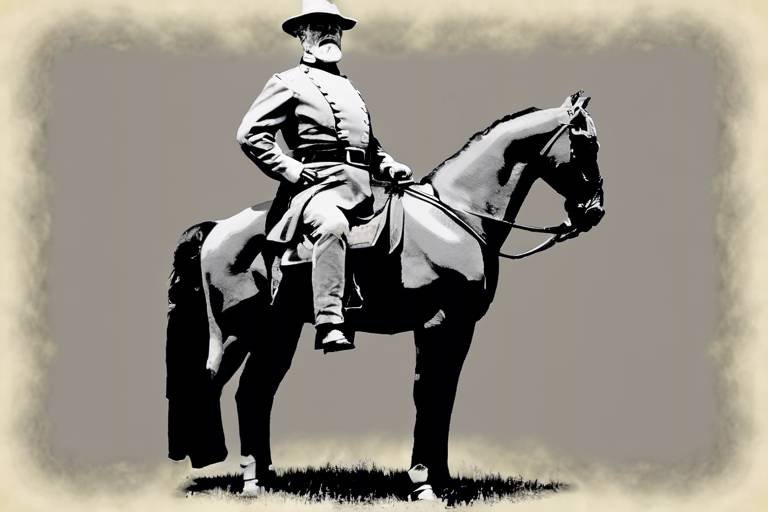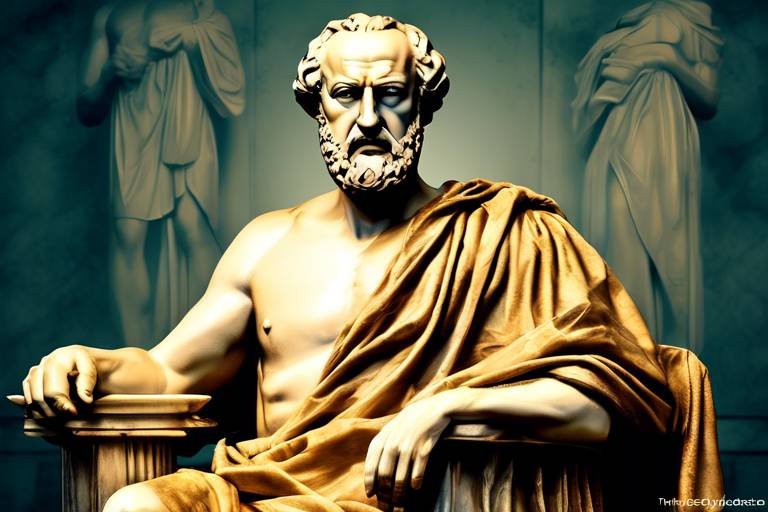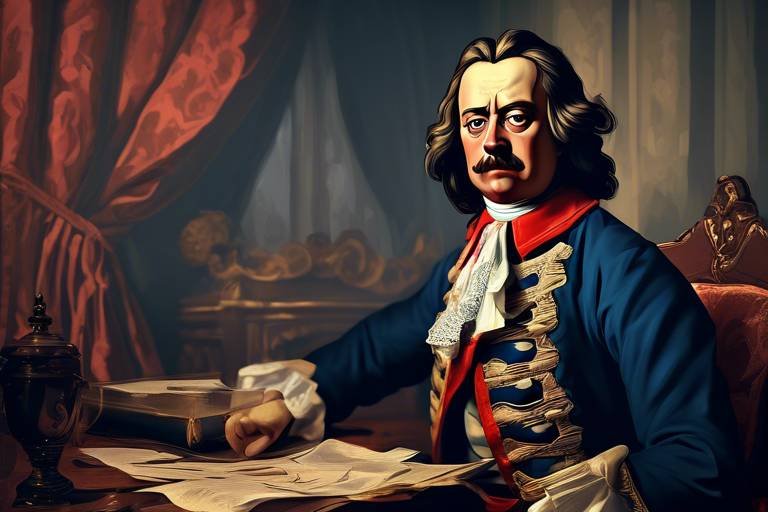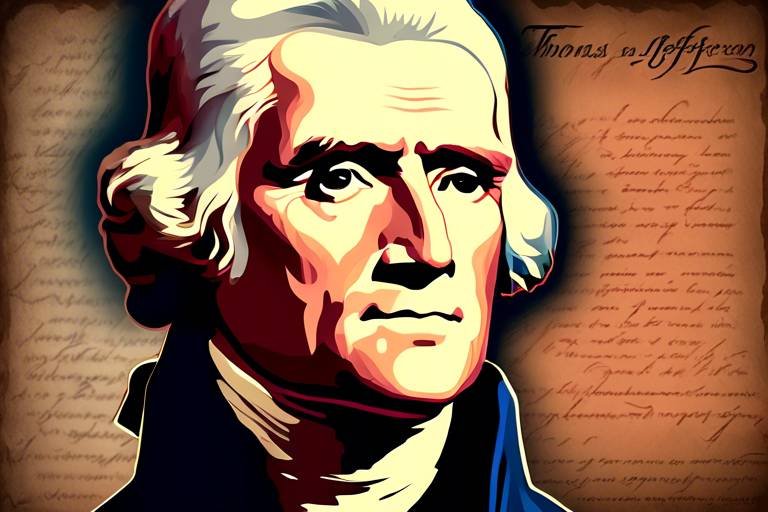Napoleon III: The Emperor of the French
Napoleon III, the nephew of the legendary Napoleon Bonaparte, rose to power as the Emperor of the French, leaving an indelible mark on France's history in the 19th century. His reign was marked by a blend of ambition, modernization, and military campaigns that shaped the course of the nation.
Known for his charismatic leadership and vision, Napoleon III embarked on a journey that saw him transform France both domestically and internationally. His strategic decisions and policies laid the foundation for a new era in French history, influencing not only his contemporaries but also generations to come.
As the Emperor of the French, Napoleon III faced numerous challenges and opportunities that tested his leadership and resolve. From economic modernization to urban renewal projects, his reign was a period of innovation and change that propelled France into the modern age.
Through alliances, military campaigns, and diplomatic maneuvers, Napoleon III sought to expand France's influence on the global stage, leaving a legacy that continues to spark debates and discussions among historians and scholars.
Join us on a journey through the life, reign, and legacy of Napoleon III, a man whose impact on France and Europe reverberates to this day. Explore the triumphs, the controversies, and the enduring legacy of the Emperor of the French as we delve into the intricacies of his rule and the events that defined his time in power.

Early Life and Rise to Power
Napoleon III, born Charles-Louis Napoléon Bonaparte on April 20, 1808, in Paris, France, was the nephew of Napoleon Bonaparte. His early life was marked by political exile and uncertainty, as he experienced multiple failed attempts to seize power in France. Despite facing challenges and setbacks, Napoleon III remained determined to fulfill his political ambitions and restore the Bonaparte dynasty to power.
After years of exile and political maneuvering, Napoleon III successfully ascended to the throne as Emperor of the French in 1852, following a coup d'état that dissolved the Second Republic. His rise to power marked the beginning of a new era in French history, characterized by authoritarian rule and ambitious modernization projects.
During his early years as Emperor, Napoleon III focused on consolidating his authority and implementing reforms to strengthen the French state. His leadership style combined elements of authoritarianism with a populist appeal, as he sought to balance the interests of the monarchy and the broader French society.
One of Napoleon III's key initiatives during his early reign was the revitalization of the French economy through infrastructure development and industrial expansion. By investing in railways, harbors, and public works projects, he aimed to stimulate economic growth and enhance France's competitiveness on the global stage.
Additionally, Napoleon III implemented social reforms to improve the living conditions of the working class and address the social inequalities prevalent in French society. His policies aimed to create a more inclusive and cohesive nation, fostering a sense of national identity and unity among the diverse population of France.
Through a combination of political acumen, strategic alliances, and public support, Napoleon III successfully solidified his position as the Emperor of the French and embarked on a transformative journey to modernize and strengthen the nation. His early life struggles and rise to power laid the foundation for a tumultuous yet influential reign that would leave a lasting impact on France and Europe.

Domestic Policies and Reforms
Exploring the life, reign, and legacy of Napoleon III, the nephew of Napoleon Bonaparte who became the Emperor of the French and played a significant role in shaping France during the 19th century.
An examination of Napoleon III's upbringing, political career, and the events that led to his ascension to the throne as Emperor of the French in 1852.
During his rule, Napoleon III implemented a series of domestic policies and reforms aimed at modernizing France and improving the lives of its citizens. One of his key initiatives was the revitalization of Paris through extensive urban planning projects led by Baron Haussmann.
Furthermore, Napoleon III focused on social reforms to address issues such as poverty and public health. He introduced measures to improve working conditions, expand education opportunities, and enhance public infrastructure across the country.
In addition to social reforms, Napoleon III's economic modernization policies played a crucial role in driving industrial development and strengthening France's position in global trade. His government invested in infrastructure projects, encouraged innovation in various industries, and promoted economic growth through strategic partnerships.
Under Napoleon III's leadership, France experienced a period of economic transformation characterized by industrial expansion and technological advancements. His policies aimed to boost manufacturing capabilities, improve transportation networks, and increase the country's competitiveness in international markets.
Baron Haussmann's ambitious renovation of Paris under Napoleon III's direction reshaped the city's landscape and infrastructure. The construction of wide boulevards, grand parks, and modern buildings not only enhanced the aesthetic appeal of Paris but also improved public health and urban living conditions.
Throughout his reign, Napoleon III pursued an active foreign policy agenda, engaging in military campaigns and diplomatic initiatives to expand France's influence on the global stage. His involvement in conflicts such as the Crimean War and the Italian unification process reflected his ambition to assert French power in Europe.
One of the notable episodes in Napoleon III's foreign policy was his intervention in Mexico, where he supported Emperor Maximilian in an attempt to establish a French-backed regime. However, facing pressure from the United States and internal resistance, Napoleon III eventually withdrew French troops from Mexico, marking a setback in his imperial ambitions.
The downfall of Napoleon III came with the disastrous Franco-Prussian War, which culminated in his capture and the collapse of the Second French Empire. Despite his defeat, Napoleon III's legacy endures through the lasting impact of his reforms, urban transformations, and contributions to France's modernization.

Economic Modernization
Napoleon III's economic modernization policies were a cornerstone of his reign, aiming to propel France into the industrial age and enhance its global standing. His vision encompassed a comprehensive approach to economic development, focusing on infrastructure enhancements, industrial expansion, and trade advancements. By investing in railways, harbors, and roads, Napoleon III sought to improve transportation networks and facilitate commerce both within France and internationally. These initiatives not only boosted economic growth but also strengthened France's position as a key player in the global market.

Haussmann's Renovation of Paris
When it comes to urban planning and transformation, few projects have left as lasting an impact as Baron Haussmann's renovation of Paris under the reign of Napoleon III. Haussmann's ambitious vision reshaped the cityscape of Paris, turning it into the iconic metropolis we know today.
One of the key aspects of Haussmann's renovation was the creation of wide boulevards that cut through the heart of Paris. These grand avenues not only provided better traffic flow but also served as avenues for social interaction and leisure, changing the way Parisians moved through and experienced their city.
In addition to the boulevards, Haussmann's plan included the development of numerous parks and public spaces throughout Paris. These green areas provided much-needed respite from the urban hustle and bustle, offering Parisians a chance to connect with nature and relax amidst the bustling city.
The renovation also saw the introduction of uniform building regulations, leading to the construction of elegant apartment buildings with consistent facades that gave Paris its distinctive architectural style. This harmonious blend of form and function transformed the city into a cohesive and visually stunning urban landscape.
Furthermore, Haussmann's renovation project was not just about aesthetics; it also aimed to improve public health and sanitation in Paris. The introduction of modern sewage systems, better lighting, and wider sidewalks enhanced the quality of life for residents and visitors alike, making Paris a more livable and attractive city.
Overall, Haussmann's renovation of Paris was a monumental undertaking that forever altered the city's physical and social fabric. By combining urban planning, aesthetics, and functionality, Haussmann and Napoleon III created a modern and dynamic city that continues to inspire admiration and awe to this day.

Foreign Policy and Military Campaigns
When it comes to foreign policy and military campaigns, Napoleon III's reign was marked by a series of strategic decisions and military actions that significantly impacted France and Europe. One of the notable events during his rule was the Crimean War, where France, alongside Britain and the Ottoman Empire, fought against Russia. This conflict aimed to curb Russian expansion and secure the balance of power in Europe.
In addition to the Crimean War, Napoleon III played a crucial role in the Italian unification process. By supporting the Kingdom of Piedmont-Sardinia in its efforts to unify Italy, Napoleon III aimed to weaken Austrian influence in the region and establish a more unified Italian state. This support ultimately led to the successful unification of Italy under King Victor Emmanuel II.
However, not all of Napoleon III's foreign ventures were successful. The Franco-Prussian War of 1870-1871 proved to be a disastrous military campaign for France. The conflict, initiated by tensions between France and Prussia over the Spanish throne, ended with the capture of Napoleon III at the Battle of Sedan and the eventual collapse of the Second French Empire.
Moreover, Napoleon III's involvement in Mexico also had significant repercussions. Seeking to establish a foothold in the Americas, Napoleon III supported Emperor Maximilian's rule in Mexico. However, pressure from the United States, combined with internal resistance, led to the withdrawal of French troops from Mexico and the execution of Emperor Maximilian.
Overall, Napoleon III's foreign policy decisions and military campaigns were characterized by a mix of ambition, strategic calculations, and unforeseen consequences. While some endeavors, like supporting Italian unification, were successful, others, such as the Franco-Prussian War and the Mexican intervention, ultimately contributed to his downfall and shaped his legacy in history.

Mexican Intervention
During Napoleon III's reign, one of the most controversial aspects of his foreign policy was his . This intervention involved Napoleon III's attempt to establish a French presence in Mexico and install Archduke Maximilian of Austria as the Emperor of Mexico. The move was not only a strategic one to expand French influence in the Americas but also a personal one to support Maximilian, who was a close ally of the French emperor.
The began in 1861 when French troops landed in Mexico under the pretense of debt collection. However, it quickly escalated into a full-scale military campaign as Napoleon III sought to establish a French-backed monarchy in Mexico. Maximilian was installed as the Emperor of Mexico in 1864, with the support of French troops and conservative Mexican factions.
Despite initial successes, the faced significant challenges. The presence of French troops in Mexico sparked resistance from Mexican nationalists, led by figures such as Benito Juárez. Additionally, the American Civil War diverted the attention of the United States, allowing Napoleon III to pursue his ambitions in Mexico without interference.
However, the tide turned against Napoleon III and Maximilian as the American Civil War ended, and the United States demanded the withdrawal of French troops from Mexico. With the threat of American intervention looming, Napoleon III made the decision to withdraw French forces from Mexico in 1866, leaving Maximilian vulnerable to the forces of Benito Juárez.
The ultimately ended in tragedy for Maximilian, who was captured and executed by Mexican forces in 1867. The failed intervention not only tarnished Napoleon III's reputation internationally but also strained relations between France and the United States. The episode served as a stark reminder of the limits of French imperial ambitions and the challenges of intervening in the affairs of other nations.

Downfall and Legacy
Napoleon III's downfall came swiftly and dramatically during the Franco-Prussian War. The defeat at the Battle of Sedan in 1870 led to his capture by Prussian forces, marking the end of his reign as Emperor of the French. The war also resulted in the collapse of the Second French Empire and the establishment of the Third French Republic. Despite his efforts to modernize France and enhance its international standing, Napoleon III's military miscalculations and diplomatic missteps ultimately sealed his fate.
However, Napoleon III's legacy is complex and enduring. His ambitious urban planning projects, exemplified by the renovation of Paris by Baron Haussmann, transformed the city into a modern metropolis with wide boulevards, grand avenues, and green spaces. These developments not only reshaped the physical landscape of Paris but also influenced urban planning practices around the world.
Moreover, Napoleon III's economic policies laid the groundwork for France's industrial growth and expansion, setting the stage for the country's emergence as a major global power in the late 19th century. His efforts to modernize infrastructure, promote trade, and stimulate economic development left a lasting impact on the French economy and society.
Despite his ultimate defeat and exile following the Franco-Prussian War, Napoleon III's legacy as a transformative figure in French history endures. His reign marked a period of significant change and progress in France, leaving a legacy of modernization, urban development, and economic growth that continues to shape the nation to this day.
Frequently Asked Questions
- Who was Napoleon III?
Napoleon III, born Charles-Louis Napoleon Bonaparte, was the nephew of Napoleon Bonaparte and the first President of France who later declared himself Emperor. He played a significant role in shaping France during the 19th century.
- What were Napoleon III's major domestic policies?
Napoleon III implemented various domestic policies aimed at modernizing France, including urban planning projects, social reforms, and the establishment of the Second French Empire. His economic modernization efforts and urban renewal projects, such as Haussmann's renovation of Paris, were notable.
- What were some key events in Napoleon III's foreign policy?
Napoleon III engaged in various military campaigns and foreign policy decisions during his reign, including involvement in the Crimean War, support for Italian unification, and the ill-fated Mexican intervention. His foreign policy ultimately led to the disastrous Franco-Prussian War.
- How did Napoleon III's reign come to an end?
Napoleon III's downfall occurred during the Franco-Prussian War, where he was captured by Prussian forces. This event marked the end of his rule and the Second French Empire. His legacy continues to influence France and Europe to this day.



















